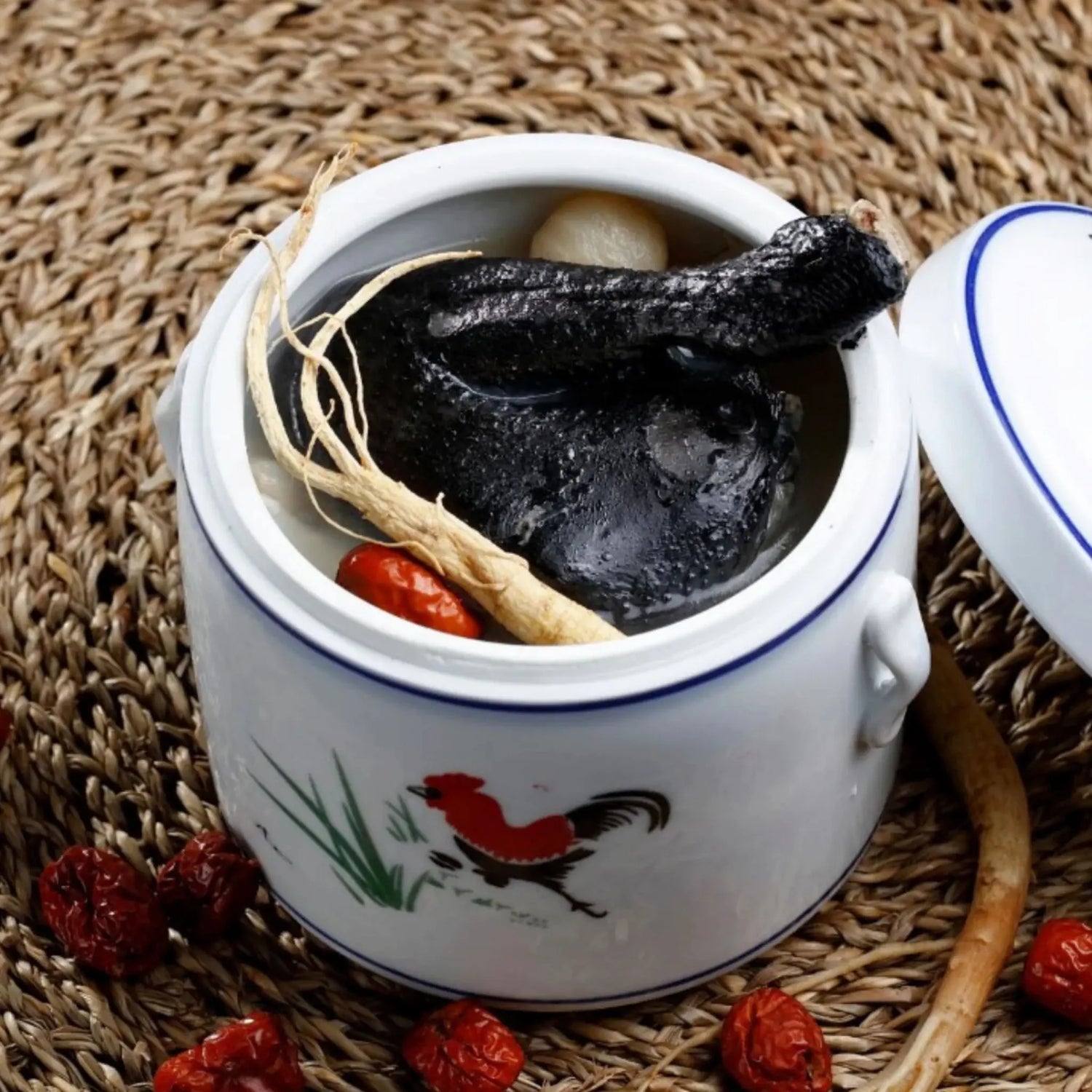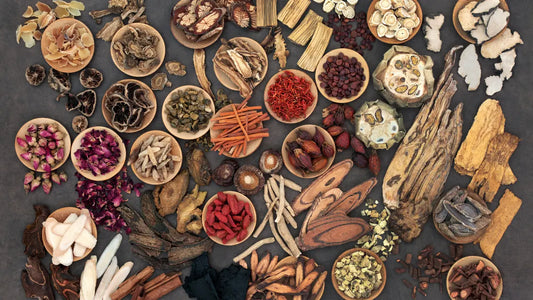Fresh vs Dried Confinement Soups: Which Suits You Best?
When you’ve just welcomed a baby, your body is doing the heavy lifting of healing, adjusting, and nourishing new life. In Traditional Chinese Medicine (TCM), postpartum recovery is a sacred window known as the confinement period. During this time, warm and nourishing soups are more than just meals they’re a form of medicine.
But if you're a new mum navigating postpartum in Australia, you might be wondering:
Should I go for fresh confinement soups or dried herbal soup blends?
The answer depends on your lifestyle, energy level, and the kind of support you have during recovery.
In this blog, we’ll gently explore the benefits of both fresh and dried confinement soups, helping you choose the approach that best suits your postpartum journey whether you're leaning on soup delivery, doing your own meal prep, or finding a middle ground.
Why Are Confinement Soups So Important?
In TCM, childbirth depletes the body's vital energy (Qi), weakens blood circulation, and leaves the body in a “cold” state. Herbal soups are used to warm the womb, rebuild strength, boost milk supply, and protect the body from future imbalances.
These soups are carefully crafted with ingredients that nourish the spleen, liver, and kidneys all organs closely tied to postpartum recovery in Chinese medicine. Whether using traditional roots, red dates, goji berries, or warming spices like ginger, confinement soups provide deep healing in every sip.
Fresh Confinement Soups: Ready Made Recovery
Fresh confinement soups are often prepared in professional kitchens, slow cooked for hours, and delivered warm or frozen to your doorstep. This option is ideal for mothers who need maximum ease in the early weeks.
One of the biggest advantages of fresh soups is convenience. When you’re sleep deprived and recovering from labour (or surgery), the last thing you want to do is cook. With fresh soup delivery, you simply heat and serve no chopping, no simmering, no guesswork.
Fresh soups also tend to retain richer flavour and nutrition. The slow cooking process extracts collagen, minerals, and herbal properties in a way that's hard to replicate quickly at home. And because these soups are professionally prepared, they’re often tailored to support different phases of recovery like boosting milk supply in week two or calming hormones in week three.
Another bonus? Many fresh soup services offer options to customise ingredients. If you need to avoid certain herbs while breastfeeding, or you prefer a stronger ginger base, you can often request a personalised plan.
However, fresh soups are typically more expensive than preparing your own. They also require refrigeration or freezer space, and have a shorter shelf life compared to dried ingredients.
Still, if you're recovering alone, have limited help, or simply want to prioritise rest, fresh confinement soups may be the perfect choice.
Dried Confinement Soups: Flexible and Budget Friendly
Dried soups usually come in kits or packets filled with carefully measured TCM herbs things like dang gui, goji berries, astragalus, and red dates. You add these to a pot with water and meat (often chicken or pork bones), then simmer at home.
One of the biggest advantages of dried soups is long shelf life. You can stock up on them before the baby arrives, and keep them stored for months without refrigeration. That makes them incredibly practical for mums who like to prepare in advance.
Dried soup blends are also great for those on a budget postpartum plan. Compared to fresh delivery, they’re significantly more affordable and if you enjoy cooking or have help from family, it’s easy to incorporate them into a weekly routine.
Another benefit is ingredient control. If you're familiar with TCM or working with a practitioner, you can choose blends that support specific healing goals like warming the uterus, calming the mind, or building back lost blood.
The one thing dried soups do require is time and effort. You’ll need at least 1–2 hours to properly simmer the herbs and extract their properties, and you’ll need to combine them with meat or other ingredients yourself. For busy new mums, that extra step can feel overwhelming.
But if you love cooking, or have a supportive kitchen partner, dried soups can be a nourishing and sustainable way to continue healing throughout your confinement period and even beyond.
Which Soup Style Is Right for You?
Choosing between fresh vs dried confinement soups depends on your energy level, recovery needs, and lifestyle.
If you’re just home from the hospital, experiencing pain, fatigue, or a C section recovery, fresh soup delivery can be an absolute lifeline. It allows you to rest fully while still receiving deep nourishment.
On the other hand, if you have help at home or enjoy time in the kitchen, dried soup herbs give you more flexibility. You can build your own flavours, control your ingredients, and save costs in the long run.
There’s no right or wrong here just what feels realistic and supportive for your current phase of recovery.
Can I Use Both? A Blended Approach
Absolutely. In fact, many Australian mums choose to combine both options. For the first 10 to 14 days postpartum, they rely on fresh soup delivery to focus fully on rest and bonding. As energy returns and routines settle, they begin to incorporate dried soup herbs into their weekly meal prep.
This hybrid method allows you to enjoy the best of both worlds
- Fresh soups provide ease and targeted healing early on
- Dried soups extend nourishment into later weeks and months
It also gives your support system some breathing room. You don’t have to choose just one path postpartum healing is not all or nothing.
Finding Soup Support in Australia
If you’re planning your recovery in advance, there are great resources available locally.
For fresh soups and meal delivery, consider:
- Golden Month: offering pre made, TCM inspired confinement meals and broths, tailored to your recovery stage
- Local Chinese herbal kitchens in Melbourne or Sydney (some offer same day delivery)
For dried herbs and soup packs, visit:
- Golden Month: 30 day soup packages
- Asian supermarkets with dedicated herbal sections
- TCM clinics that sell curated soup blends
- Online stores with postpartum herb kits (look for organic, sulphur free ingredients)
No matter which path you choose, always check for ingredient quality and safe sourcing, especially if you're breastfeeding or taking medications.
Common Questions Fresh vs Dried Confinement Soups
Are dried soups less nutritious than fresh ones?
Not necessarily. If prepared correctly, dried herbs are very potent and effective. The difference lies more in preparation time and taste preference than nutritional value.
How long do fresh confinement soups last?
Fresh soups typically keep for 3 to 5 days in the fridge, and up to 3 months when frozen. Always follow storage instructions from your delivery provider.
Can I freeze soup made from dried herbs?
Yes. Many mums cook large batches of herbal soup using dried ingredients, then freeze portions for later use.
What if I don’t like the taste of certain herbs?
If using fresh soup services, you can usually request adjustments. If cooking at home, start with milder herbs like red dates, goji berries, and ginger until you find what works for you.
Conclusion: Let Your Body Guide You
In the end, your body knows best. Some days you’ll crave the ease and warmth of a professionally prepared soup. Other days, you might enjoy stirring your own pot of healing herbs in the kitchen.
Choosing between fresh vs dried confinement soups is less about perfection and more about supporting your recovery with intention. Whether you go fresh, dried, or a combination of both, the goal remains the same: to nourish your body, calm your mind, and gently restore your strength one bowl at a time.
Need help finding the right confinement support for your healing journey?
Contact us today for personalised guidance, meal plans, or herbal soup options crafted just for you.






